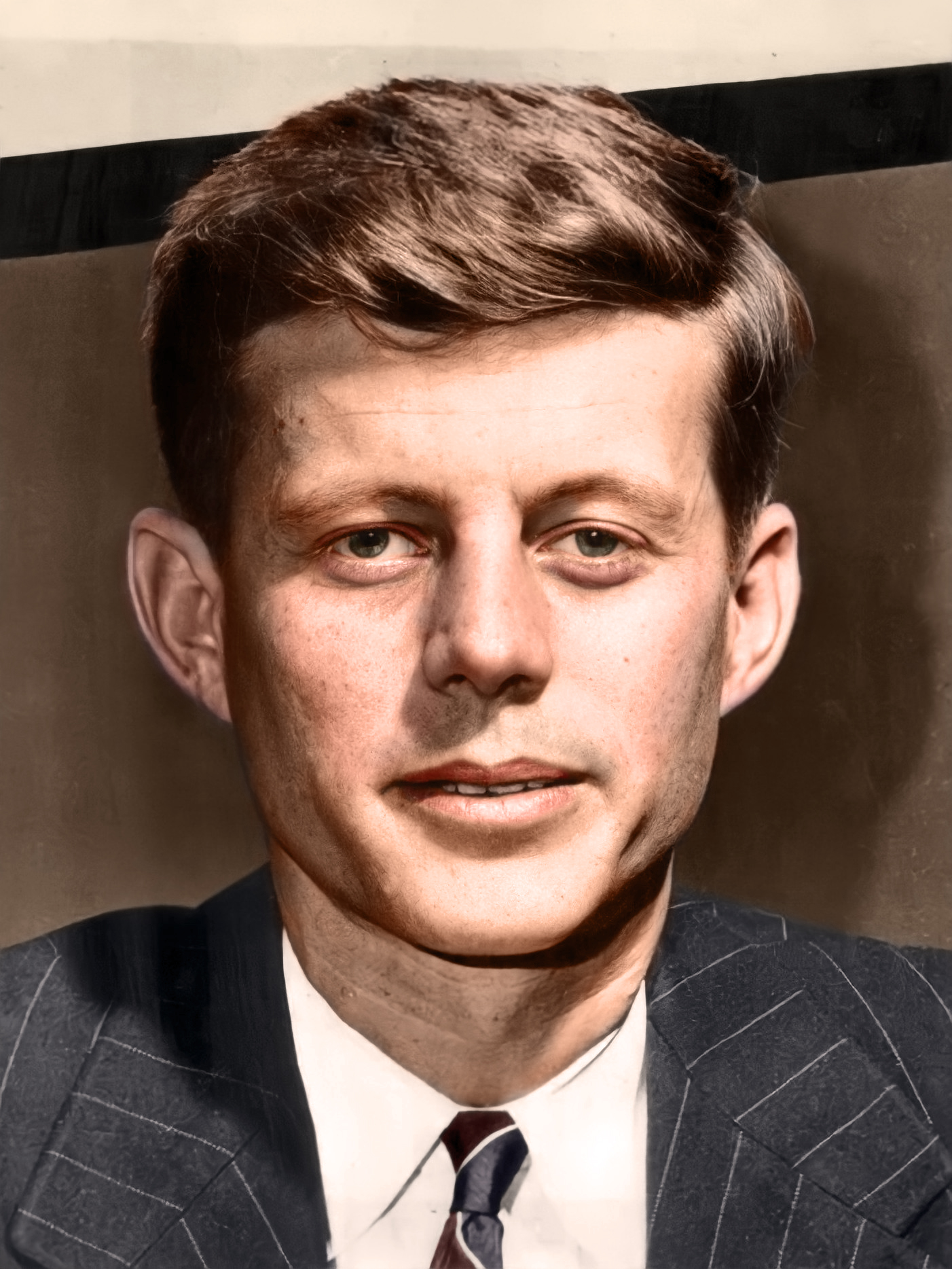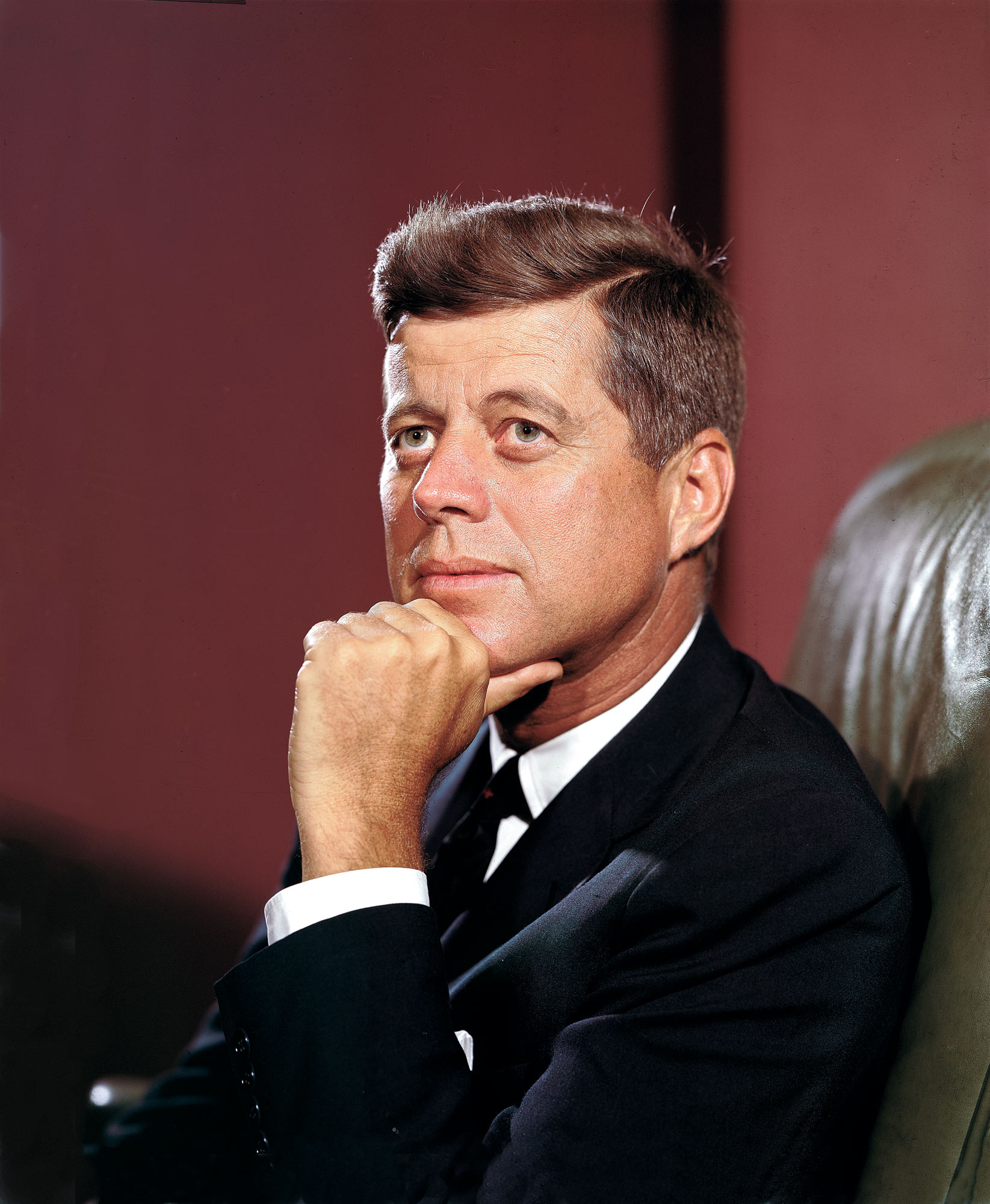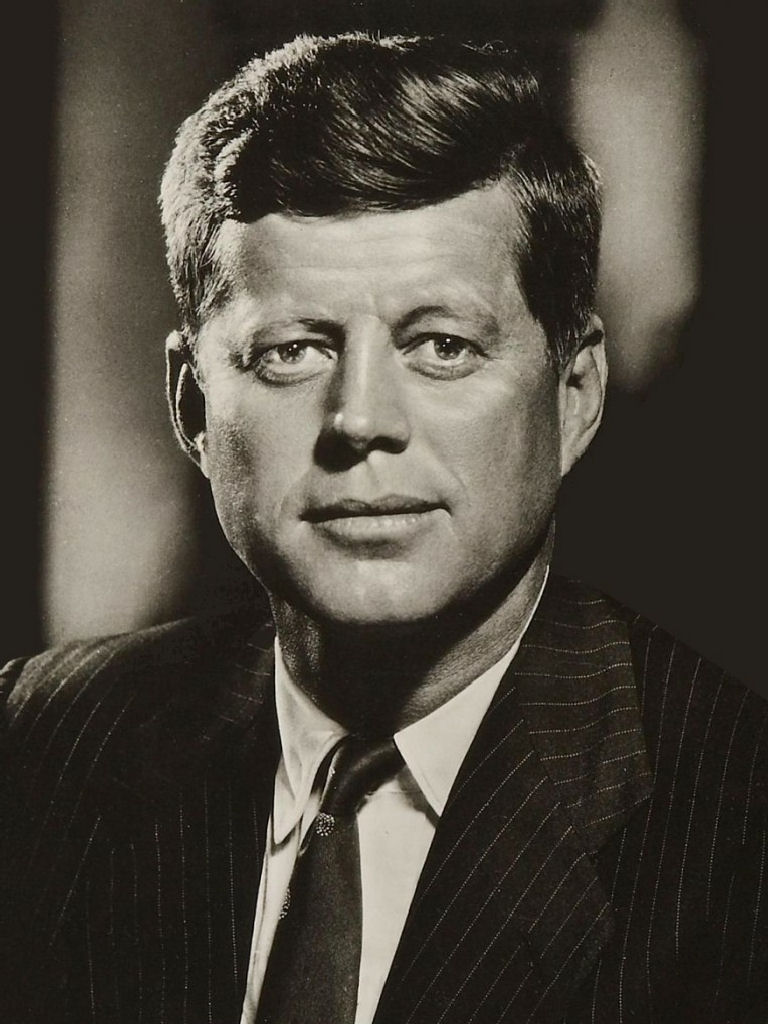When Was JFK President Of The United States? A Look At His Pivotal Term
Detail Author:
- Name : Mr. Myles Reynolds PhD
- Username : yfisher
- Email : sreilly@yahoo.com
- Birthdate : 1987-06-09
- Address : 4259 Jazlyn Oval Suite 122 Swiftville, OK 29410-0358
- Phone : +1-959-609-8601
- Company : Green Ltd
- Job : Manager Tactical Operations
- Bio : Similique nam quidem aut aut neque. Dolor commodi et dicta tempora hic ipsam.
Socials
tiktok:
- url : https://tiktok.com/@jannie_wolff
- username : jannie_wolff
- bio : Culpa quo et aut tenetur dolorem distinctio quis.
- followers : 933
- following : 2899
instagram:
- url : https://instagram.com/wolff1971
- username : wolff1971
- bio : Quidem fugiat amet tempora fuga numquam. Aperiam aut nulla quo repellat quo velit in.
- followers : 4268
- following : 2715
linkedin:
- url : https://linkedin.com/in/jannie_dev
- username : jannie_dev
- bio : Neque explicabo aut sint.
- followers : 1884
- following : 1565
Have you ever stopped to think about the presidents who truly left a mark on our country’s story, the ones whose time in office, even if short, seems to echo through the years? It's a question many people ponder, especially when we talk about someone like John F. Kennedy. You know, his name just comes up so often in conversations about American history, and for very good reason, too. So, if you're curious about the exact span of his leadership, about when he actually held the highest office in the land, then you've come to the right place to find out.
His time as president, in a way, was quite a significant period, despite its relatively brief length. John F. Kennedy, often called Jack by those who knew him, was a figure who, frankly, captured the attention of many people, both at home and across the globe. He stepped onto the national stage at a moment when the world was changing, and he brought with him a certain energy and vision that, arguably, felt fresh and new.
This article aims to shed some light on his presidential years, giving you a clear picture of when he served, and a little bit about the kind of person he was before and during that impactful period. We’ll look at the specific dates of his presidency and touch upon some personal aspects that, you know, shaped his life and his leadership. It's a story that, in some respects, is very much a part of our collective memory.
Table of Contents
- The Presidency of John F. Kennedy
- John F. Kennedy: A Glimpse into His Life
- Frequently Asked Questions About JFK's Presidency
The Presidency of John F. Kennedy
A Brief but Impactful Term (1961-1963)
So, to answer the main question directly: John F. Kennedy, the 35th president of the United States, held office from 1961 to 1963. This period, though relatively short, is actually seen by many as a truly significant moment in the country's story. He took the presidential oath and began his work in 1961, and his time leading the nation continued until 1963.
His presidency, you know, lasted for a bit more than a thousand days, which is a rather quick stretch for a leader to be in such a powerful position. It’s almost like a flash in time, but one that, apparently, left a very deep impression on the nation and the world. This specific timeframe, from 1961 to 1963, is what people refer to when they ask about when was JFK president of the United States.
During these years, even though they were limited, Kennedy was a pivotal figure in American history, shaping events and inspiring many people. He was a leader who, in a way, seemed to bring a sense of youthful energy to the White House, which was something quite different for the country at that point. His influence, even in that somewhat short time, still resonates with us today, nearly sixty years later, as a matter of fact.
A Young Leader and a Catholic First
One of the remarkable things about John F. Kennedy's presidency is that he became one of the youngest United States Presidents ever. This was, you know, quite a big deal at the time, seeing someone relatively young take on such immense responsibilities. His age brought a different kind of feel to the highest office, a sort of freshness that many found appealing.
Beyond his youth, Kennedy also broke new ground in another very important way. He was the first Roman Catholic to hold the office of President of the United States. This was a significant moment for the country, a clear sign of changing times and, in some respects, a broader acceptance within the nation's political landscape. It was a barrier that, you know, had stood for a very long time, and he was the one who, quite simply, crossed it.
His background, as a Catholic, was something that, apparently, generated much discussion during his campaign and early days in office. Yet, he managed to secure the trust of the American people, demonstrating that a person's faith did not, in fact, hinder their ability to lead the country. This aspect of his election, in a way, is still very much talked about when we remember his time as president.
The Tragic End of a Presidency
The time John F. Kennedy served as president, from 1961 to 1963, came to a sudden and very sad end. On November 22, 1963, he was assassinated, which was a day that, honestly, shook the entire nation to its core. This event happened when he was hardly past his first thousand days in office, meaning his time as the nation's leader was cut short very abruptly.
The date, November 22, 1963, is a day that, you know, is etched into the memory of countless people, especially those who lived through it. It marks the moment his presidential term, which had begun with so much hope and excitement, came to a truly tragic close. The news spread quickly, and it left a feeling of profound sadness and disbelief across the country, and indeed, the world.
His passing, so early in his term, meant that many of the plans and visions he had for the country would, quite naturally, be left unfinished. It was a moment that, in a way, changed the course of American history, leaving a lasting impact on the nation's spirit and its political journey. The question of when was JFK president of the United States is, therefore, very much tied to this sorrowful end.
John F. Kennedy: A Glimpse into His Life
Personal Details and Bio Data
To give you a clearer picture of John F. Kennedy, here are some key details about his life, drawn from what we know. These facts, you know, help us understand the person behind the presidency, and they show a bit about his background and personal journey. It’s always good to have these kinds of specific points when you’re learning about historical figures.
| Full Name | John Fitzgerald Kennedy |
| Nickname | Jack |
| Born | May 29, 1917 |
| Birthplace | Brookline, Massachusetts |
| Parents | Joseph Kennedy and Rose Fitzgerald Kennedy |
| Number of Siblings | Eight (He was one of nine children) |
| Presidential Term | 1961 – 1963 |
| Presidential Number | 35th President of the United States |
| Notable Firsts | Youngest U.S. President, First Roman Catholic President |
| Assassinated On | November 22, 1963 |
| Health Challenges | Chronic back problems, Addison’s disease |
Early Life and Family Roots
John Fitzgerald Kennedy, or Jack as he was known, first came into the world on May 29, 1917. His birthplace was Brookline, Massachusetts, which is just a few miles outside of Boston, a pretty well-known area. He was born into a family that was, apparently, already quite wealthy and had a good deal of connections in the world of politics, which, you know, certainly shaped his early experiences.
His parents were Joseph Kennedy, who was a very successful businessman, and Rose Fitzgerald Kennedy. Rose, his mother, was a woman who was, by all accounts, very disciplined and organized. In fact, when her second child, John, was born, she made a specific entry on a notecard, which, in a way, shows her meticulous nature and her approach to family life.
He was not an only child; in fact, he had eight siblings. So, you can imagine, growing up in the Kennedy family was probably a very lively and busy experience. This large family unit, with its strong parents and many children, certainly played a big part in forming the person John F. Kennedy would become later in life, and, frankly, it’s a pretty interesting dynamic to consider.
Battling Health Challenges
It’s important to know that, despite his public image of vitality and strength, John F. Kennedy, known as Jack, lived his life, in a way, with a good deal of physical discomfort. He had chronic back problems that were, quite simply, made worse by his love for physical activities and his competitive spirit. This meant he often had to deal with pain, even as he pursued his career and, later, his presidency.
Beyond the back issues, he also had Addison’s disease. This is a hormonal disorder, and it’s something that, you know, can be quite serious. It requires careful management, and it was a private struggle that he, apparently, carried throughout much of his adult life. The fact that he managed to achieve so much while dealing with these health issues is, in some respects, truly remarkable.
These health challenges were not widely known to the public during his time, but they were a very real part of his personal story. They show a different side to the powerful figure, a human element of vulnerability and perseverance that, you know, adds another layer to his legacy. It’s a reminder that even prominent figures face their own quiet battles, and that, in a way, is a very human truth.
A Privileged Upbringing
John F. Kennedy, along with his eight siblings, enjoyed what many would describe as a privileged childhood. This meant they grew up with access to things that were, quite simply, not available to everyone. They attended elite private schools, which, naturally, provided them with a very high level of education and prepared them for future roles in society.
Their family life also included leisure activities that were, you know, quite luxurious for the time. They had sailboats, which suggests a love for the water and outdoor pursuits, and they also had servants, which points to a comfortable and well-supported home environment. This kind of upbringing, in a way, provided a strong foundation for their future endeavors, and it’s a pretty clear picture of their family’s standing.
This background, with its blend of wealth, education, and social connections, certainly played a role in shaping John F. Kennedy's worldview and his opportunities. It gave him a certain perspective on life and, arguably, prepared him for the public service path he would eventually choose. It’s a part of his story that, you know, helps explain some of the advantages he had from a very early age.
Frequently Asked Questions About JFK's Presidency
When did JFK become president?
John F. Kennedy officially became the 35th President of the United States in 1961. He took the oath of office and began his term in that year, marking the start of his leadership. So, if you're wondering about the precise moment he stepped into that role, it was, you know, at the very beginning of 1961, a moment that, in a way, felt full of possibility for many people across the country.
How old was JFK when he became president?
When John F. Kennedy became president in 1961, he was, quite simply, one of the youngest individuals to ever hold that office. He was born on May 29, 1917, so when he took on the presidency in 1961, he was 43 years old. This age, you know, made him stand out among past presidents, and it certainly contributed to his youthful image and appeal, which, apparently, resonated with many voters at the time.
What year did JFK die?
John F. Kennedy's life and presidency came to a very tragic end in the year 1963. Specifically, he was assassinated on November 22, 1963. This date is, you know, a very somber one in American history, marking the moment his time as president concluded far too soon. It happened when he was, frankly, hardly past his first thousand days in the role, which, in a way, makes the suddenness of his passing even more impactful for those who look back on it.
So, there you have it, the story of when was JFK president of the United States, along with a bit about the man himself. His time in office, though brief, was, you know, undeniably significant, leaving a lasting impression on the nation’s history. From his youthful energy to his groundbreaking status as the first Roman Catholic president, and the profound sorrow of his passing, his story remains a powerful part of the American narrative. To learn more about his impact on the civil rights movement, you could, for instance, check out The John F. Kennedy Presidential Library and Museum. You can also explore other historical figures on our site, and, you know, find more details about key moments in presidential history right here.

John F. Kennedy in Color, 1947 - HistoryColored

John F. Kennedy – Yousuf Karsh

John F Kennedy